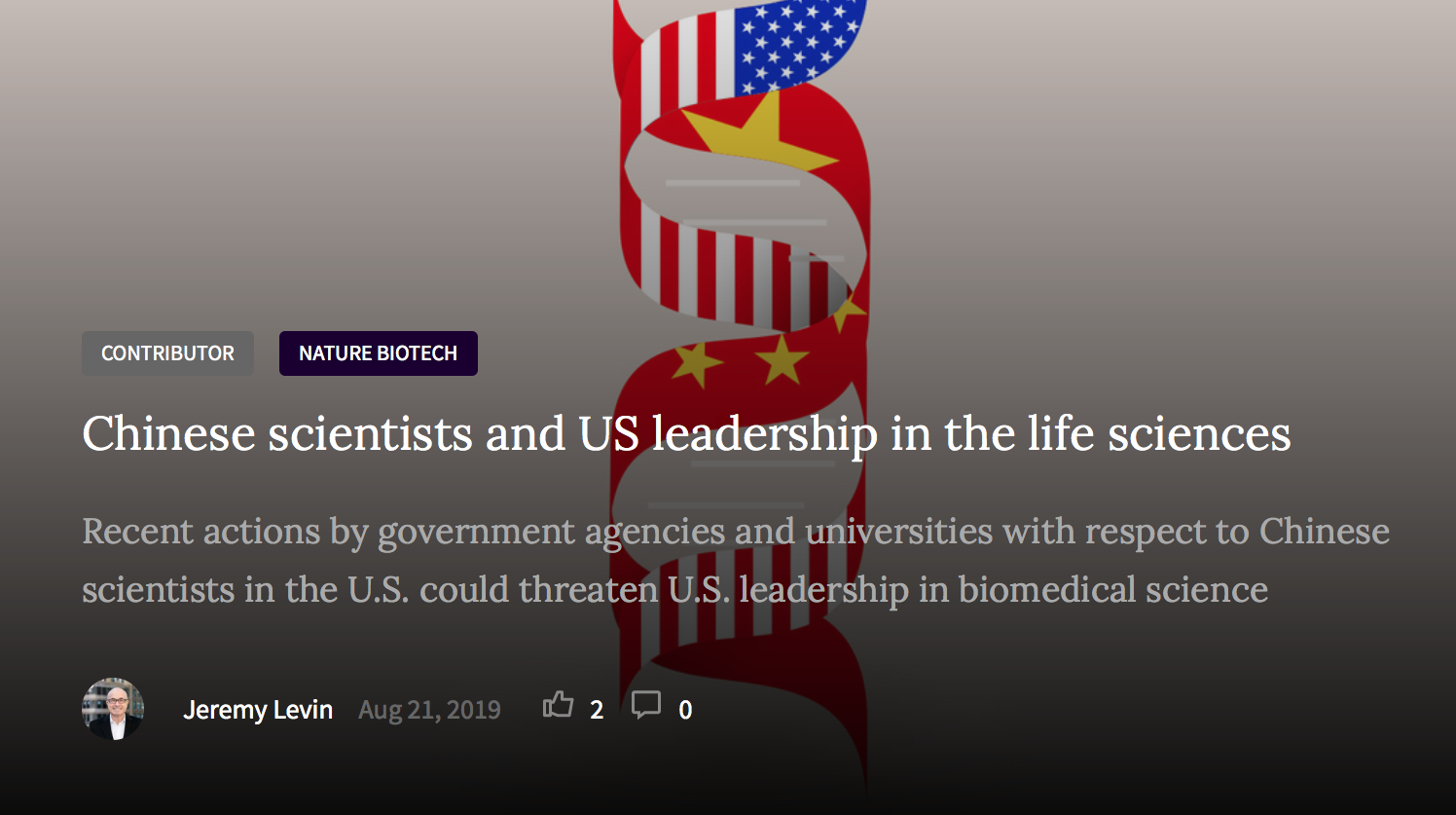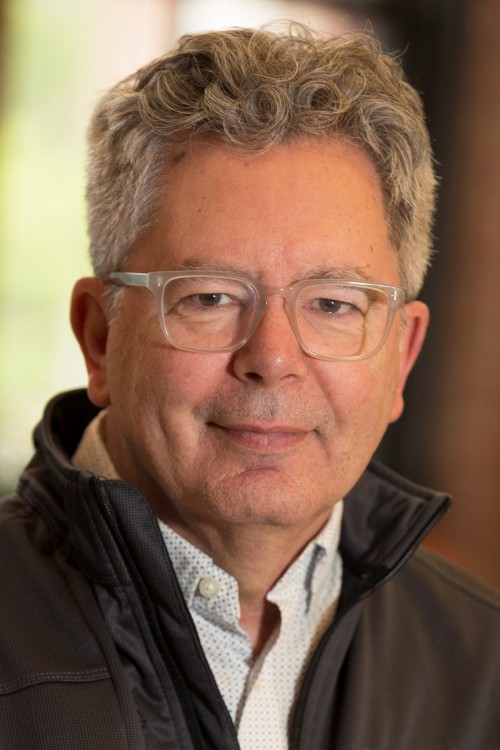August 22, 2019 | Jola Glotzer
Standing for representation in science
CBC Executive Director Jim Audia among ‘150 prominent biomedical scientists and pharmaceutical industry leaders’ to sign an open letter in support of representation within the biomedical research community
Yesterday, August 21, 2019, an open letter, titled “Chinese scientists and US leadership in the life sciences,” was published online by the journal Nature, condemning recent threats and dismissals of Chinese and Chinese-American scientists by US universities.
‘“If we are to prevail in humanity’s common quest to conquer disease, our surest route is to include any person able to contribute, regardless of country of origin, religion, race, gender, or other identity,”’ stated the open letter.
CBC Executive Director Jim Audia was one of the approximately 150 scientists and pharma leaders from the US and abroad who signed the open letter.
In the below first commentary released in response to the open letter, Jim is recognized: ‘Signatories to the letter published on Wednesday included prominent bioscientists and industry leaders, among them president and founding director of the Broad Institute of MIT and Harvard Eric Lander; Harvard chemist David Liu; and James Audia, executive director of the Chicago Biomedical Consortium.’
Thanks, Jim, for representing the CBC community in standing for representation in science!
US pharmaceutical chiefs and scientists back Chinese researchers living in ‘climate of fear’
Yahoo News; first reported by South China Morning Post | by Simone McCarthy | August 22, 2019
A group of around 150 prominent biomedical scientists and pharmaceutical industry leaders in the US [and abroad] has come out in opposition to “recent actions” by government agencies and universities against Chinese scientists working in the United States.
In a letter published on a bioengineering community page on the website of the journal Nature on Wednesday, the group called out university dismissals of Chinese and Chinese-American scientists, saying such actions created “a climate of fear and uncertainty” in the biomedical research community.
The statement comes as Chinese and Chinese-American scientists have increasingly found themselves under scrutiny and targets of suspicion in the ongoing US-China trade and technology war, with the United States accusing China of using stolen American intellectual property to fuel its own technological advance, an allegation that China denies.
Signatories to the letter published on Wednesday included prominent bioscientists and industry leaders, among them president and founding director of the Broad Institute of MIT and Harvard Eric Lander; Harvard chemist David Liu; and James Audia, executive director of the Chicago Biomedical Consortium.
The letter was also signed by CEOs of New York Stock Exchange-listed pharmaceutical companies including BioMarin Pharmaceutical’s Jean-Jacques Bienamie, Allergan’s Brent Saunders, and Alnylam Pharmaceuticals’ John Maraganore.
“If we are to prevail in humanity’s common quest to conquer disease, our surest route is to include any person able to contribute, regardless of country of origin, religion, race, gender, or other identity,” the open letter said.

Open letter: Chinese scientists and US leadership in the life sciences. (Source: Nature)
Scientists in the bioscience field have been the focus of scrutiny after the National Institutes of Health (NIH) – a major federal funding agency for health and bioscience research – launched an internal investigation last year into the foreign connections of its beneficiaries.
The investigation came after warnings from the Trump administration and concerns in Congress about the potential for Chinese researchers to steal laboratory data.
On Wednesday, Feng “Franklin” Tao, an associate professor at the University of Kansas was indicted on federal fraud charges that he failed to disclose ties to a Chinese university while doing research funded by the US government.
US authorities said Tao had hidden the fact he was working full-time for Fuzhou University in China while conducting research at the University of Kansas funded through US Department of Energy and National Science Foundation contracts.
The indictment alleges Tao signed a five-year contract in May 2018 with Fuzhou that required him to be a full-time employee of the Chinese university.
This latest case follows similar incidents prompted by the NIH investigation.
In May, Emory University in Atlanta dismissed two federally funded Chinese-American neuroscientists, who had worked at the university for more than 20 years, for failing to disclose foreign funding and affiliations with Chinese universities, according to a university statement published in The Atlanta Journal-Constitution newspaper.
In April, three ethnically Chinese researchers were ousted from a prominent cancer research centre in Houston for failing to disclose similar ties with China.
Advanced degree students in the science and engineering fields from China, by far the leading source of US international students, have also reported visa denials in recent years since the ramping up of tensions between the two countries under the Trump administration.
There were 53,000 Chinese doctoral students in the United States, according to data published in March by the US Department of Homeland Security.
In their open letter published on Wednesday, the scientists and industry leaders noted the contributions of Chinese scientists, stating the “atmosphere of intimidation will encourage many outstanding scientists of Chinese origin to leave the US or never to come”.
Such “diverse talent” was “fundamental to our world leadership in biomedical research and drug development”, the letter said.
Source:
Adapted (with modifications) from the Yahoo News; first reported by South China Morning Post, by Simone McCarthy, published on August 22, 2019.
See also:
▸ Chinese scientists and US leadership in the life sciences, Nature, by Jeremy Levin, published August 21, 2019.

